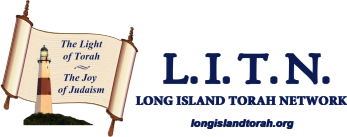Matos-Masei
Matos begins with the laws of neder and sh’vua, two distinct types of vows or oaths. As the Talmud explains, a neder is a statement about an object – food, a vessel or even a person – rendering that object “non-Kosher,” or forbidden. Sh’vua, by contrast, is a statement about oneself – obligating the person to do – or not to do– a given act. (A sh’vua can also speak about the past, as in legal oaths, which can be required in Jewish courts.)
G-d commands Moses to wage war on the Midianites, whose successful attempt to seduce the Jews resulted in the deaths of twenty-four thousand. [The Moabites, though equally responsible, are not attacked. The Moabites acted out of fear; the Midianites, who were not in the path of the Israelite armies, acted purely out of spite.] Only one thousand men from each tribe – twelve thousand in all – are selected to join the army. Miraculously, not a single Jewish solider is killed.
The Tribes of Reuven and Gad approach Moses with a request: given their large herds of livestock, it would be in their interest to retain the conquered territories in Transjordan, while relinquishing their rights to Israel proper. Moses accuses them of reiterating the sin of the Spies, whose reluctance to enter the Land discouraged the nation and resulted in forty years’ wandering in the desert. Reuven and Gad explain that they have no intention of shirking their national duty; they will go to war with the rest of their brethren, taking a leading role in the conquest of the entire Land. Only when all are settled will they return to their wives and children in Transjordan. Moses acquiesces to this arrangement, granting their request conditional on their fulfilment of the deal. The structure and phraseology of Moses’ declaration is used by the Talmud as the template for conditional contractual arrangements.
Parshas Masei concludes the fourth book of the Torah and the journey of the Israelites to the Promised Land. The Torah summarizes the forty-year itinerary from the Land of Egypt to the banks of the Jordan River. Hashem’s kindness to the Jews is evident, for the entire journey consisted of only forty-two stops - more than half of them in the first or the fortieth year, and only twenty stops during the remaining thirty-eight years.
The Torah delineates the borders of Israel west of the Jordan River. The land will be divided into twelve sections, which will be distributed by lottery among the Twelve Tribes. The Levites did not receive their own section, but were given a number of cities throughout the land. The Levite cities also served as Cities of Refuge for a man who accidentally kills another person. Six additional cities were also dedicated specifically as Cities of Refuge.
The Parsha concludes with special instructions for the daughters of Tzelofchad. As recounted in Parshas Pinchas, these five sisters had petitioned for the right to inherit their father’s portion of land. Hashem validated their request, declaring that their logic was correct. Now, Hashem instructs them to marry within their tribe, to ensure the integrity of the tribal borders. This command was temporary in nature, applicable only to the first generation entering the Land of Israel.
G-d commands Moses to wage war on the Midianites, whose successful attempt to seduce the Jews resulted in the deaths of twenty-four thousand. [The Moabites, though equally responsible, are not attacked. The Moabites acted out of fear; the Midianites, who were not in the path of the Israelite armies, acted purely out of spite.] Only one thousand men from each tribe – twelve thousand in all – are selected to join the army. Miraculously, not a single Jewish solider is killed.
The Tribes of Reuven and Gad approach Moses with a request: given their large herds of livestock, it would be in their interest to retain the conquered territories in Transjordan, while relinquishing their rights to Israel proper. Moses accuses them of reiterating the sin of the Spies, whose reluctance to enter the Land discouraged the nation and resulted in forty years’ wandering in the desert. Reuven and Gad explain that they have no intention of shirking their national duty; they will go to war with the rest of their brethren, taking a leading role in the conquest of the entire Land. Only when all are settled will they return to their wives and children in Transjordan. Moses acquiesces to this arrangement, granting their request conditional on their fulfilment of the deal. The structure and phraseology of Moses’ declaration is used by the Talmud as the template for conditional contractual arrangements.
Parshas Masei concludes the fourth book of the Torah and the journey of the Israelites to the Promised Land. The Torah summarizes the forty-year itinerary from the Land of Egypt to the banks of the Jordan River. Hashem’s kindness to the Jews is evident, for the entire journey consisted of only forty-two stops - more than half of them in the first or the fortieth year, and only twenty stops during the remaining thirty-eight years.
The Torah delineates the borders of Israel west of the Jordan River. The land will be divided into twelve sections, which will be distributed by lottery among the Twelve Tribes. The Levites did not receive their own section, but were given a number of cities throughout the land. The Levite cities also served as Cities of Refuge for a man who accidentally kills another person. Six additional cities were also dedicated specifically as Cities of Refuge.
The Parsha concludes with special instructions for the daughters of Tzelofchad. As recounted in Parshas Pinchas, these five sisters had petitioned for the right to inherit their father’s portion of land. Hashem validated their request, declaring that their logic was correct. Now, Hashem instructs them to marry within their tribe, to ensure the integrity of the tribal borders. This command was temporary in nature, applicable only to the first generation entering the Land of Israel.

